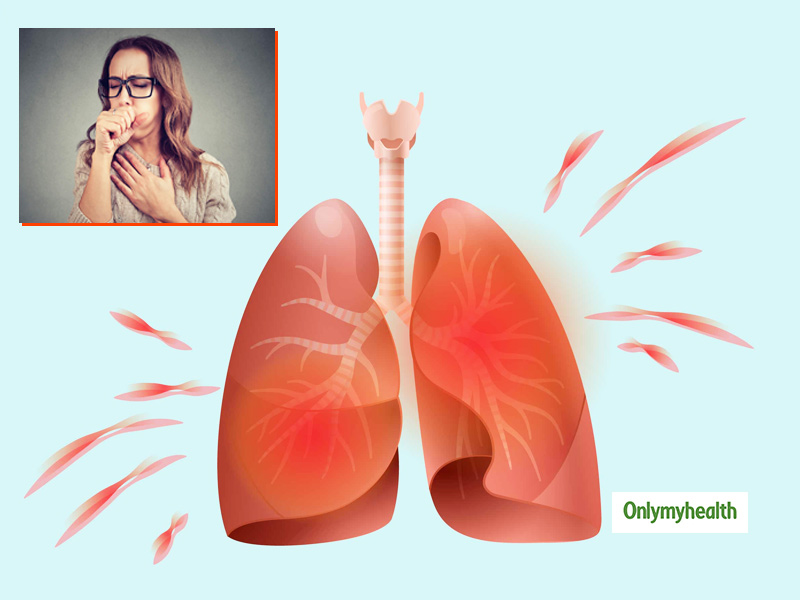
Chronic Asthma is an inflammatory disease obstructing airways. These bronchial tubes allow air to come in and out of the lungs, thus creates respiratory problems such as wheezing (whistling sound from the chest while breathing), breathlessness, and shortness of breath. The disease tends to worsen with a dip in temperature, rinse in pollens and deterioration in air quality that is a normal phenomenon in winter, gripping North India swiftly. Metabolic changes induced by the alteration in environmental temperature and weather conditions further aggravate the problems for patients. "With the rise in PM2.5 levels, the number of cases has significantly increased during the winter season. During the winter, the dampness of air grows, making it heavy, so it does not rise, making people with sensitivity prone to asthma symptoms noticeable, which vary and depend on types -Childhood asthma, Adult-onset, occupational and Seasonal asthma. While the workplace irritants are responsible for Occupational asthma, weather and related changes cause Seasonal asthma," states Dr Shivanshu Raj Goyal, Consultant Pulmonologist, Artemis Hospitals, Gurugram.
Table of Content:-
Seasonal asthma

The risk factors of asthma-related to air quality stimulate with the onset of winter and intensify with time. Combining exposure to particles provoking allergy or creating an obstruction in airways and genetic predisposition are the significant risk factors of developing asthma. Apart from that, genetics is also among the significant causes; people having a family history of the disease are prone to getting inflammation or swelling of the airways. In addition to this, the history of viral infection during childhood makes a person vulnerable to the disease.
Also read: Suffering From Dry Cough? Ayurvedic Remedies To Get Rid Of It
Preventive measures to be taken care of
Asthma is a non-curable yet controllable disease which with precautions, proper prevention, and effective treatment, can be very well managed. The patients need to recognize the circumstances that trigger an asthma attack and keep track of the symptoms, especially in winter. Below are a few precautionary measures by Pulmonologist Shivanshu Raj Goyal to be taken care of.

- The use of air-purifying plants or HEPA based air purifiers indoors is useful
- Avoid dry dusting or exposing to string smells like paints or perfumes
- Maintain hygiene/Wash your hands regularly
- Keep extra stock of reliever inhaler at house
- Exercise indoor/Use inhaler before exercise
- Wear an anti-pollution mask once outdoors
- Clean/change filters as per the need
- Take medications before going out
- Increase the intake of warm fluid
- Avoid sitting by the fireplace
- Annual flu shot a must
- Avoid stress, smoking
Also read: Home Remedies for Cold and Cough during Pregnancy
Myths
- Nebulisers are only to be used at hospitals
- Steroids should never be used for asthma
- Inhalers are habit-forming
- Only smokers get asthma
Takeaway Tips By Dr Shivanshu Raj Goyal
Precautions will help in keeping the disease under control during the winter. One must consult the physician as soon as he/she sees symptoms or feel breathing complications. It is advisable to follow the instructions and recommended medication to manage the disease effectively. In these present times, people with asthma are very prone to viral infections, similarly Covid-19. So following all universal steps like 6 feet distancing, frequent hand washing, avoiding crowded places and having your baseline disease under control with the use of inhalers and antihistaminics.
Read more articles on Other diseases
Also watch this video
How we keep this article up to date:
We work with experts and keep a close eye on the latest in health and wellness. Whenever there is a new research or helpful information, we update our articles with accurate and useful advice.
Current Version